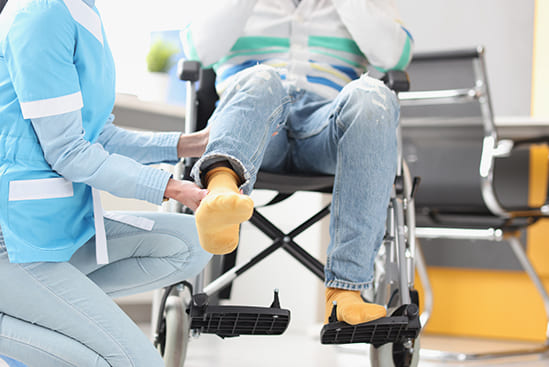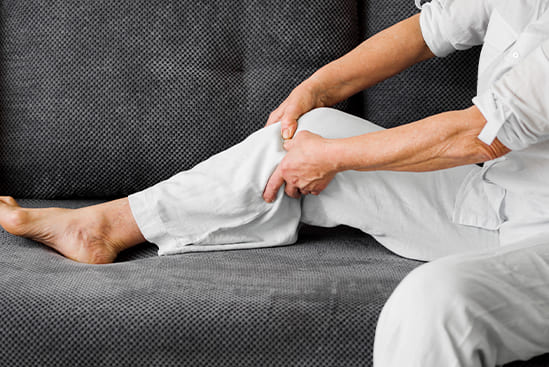
Synapse Physiotherapy
Introduction
Recovering from a stroke is never easy, but home physiotherapy can make the process smoother, safer, and more effective. This method helps stroke survivors regain strength, balance, and confidence all from the comfort of their own homes. With the right support and professional guidance, recovery becomes more manageable and less stressful.
Home physiotherapy brings licensed therapists directly to the patient’s living space, allowing rehabilitation to happen in a familiar setting. This can reduce anxiety, improve motivation, and lead to faster, more functional recovery. Whether the goal is to walk independently or just move safely around the house, home physiotherapy offers a smart path forward.
1. Convenience and Comfort at Your Doorstep
No Travel, Less Stress, More Consistency
For many stroke survivors, going to a clinic can be both exhausting and challenging. Some may rely on family members or caregivers for transport, which can be inconvenient and tiring for everyone involved. Home physiotherapy solves this problem by bringing expert care straight to the home.
Since sessions are held at home, patients are more likely to stick to their rehab schedule. Therapists arrive with portable tools and use furniture and spaces that the patient already knows. This makes therapy easier to follow and more relevant to everyday life.
Cost-Effective and Time-Saving
Though some may think in-home services are expensive, home physiotherapy can be more cost-effective over time, especially when factoring in transport costs, caregiver time, and potential complications from missed therapy.
By receiving therapy at home, patients avoid the financial and physical costs of traveling to a clinic. More importantly, consistent therapy helps prevent long-term disabilities, reduce hospital readmissions, and improve overall health outcomes, which can save money on medical care down the line.
2. A Plan That Fits You Perfectly
Personalised Care with Real-Life Goals
Every stroke is different. Because of this, recovery must be tailored to each person’s needs. Home physiotherapy allows therapists to assess a patient’s daily environment, then create a plan that targets specific goals, like getting out of bed, walking to the bathroom, or climbing stairs.
Some common therapy goals include:
- Regaining strength and mobility
- Improving coordination and balance
- Learning to walk safely again
- Reducing muscle tightness and stiffness
- Preventing falls
- Teaching caregivers how to assist properly
These personalised plans focus on what truly matters to the patient and their family, making recovery faster and more meaningful.
Faster Functional Gains and Greater Independence
The ultimate goal of stroke rehabilitation is to regain as much independence as possible. Home physiotherapy is one of the best ways to support this goal, as it focuses on real-world functionality and everyday movements.
Over time, patients often experience:
- Improved strength and mobility
- Better posture and balance
- Increased ability to perform daily tasks (e.g., bathing, dressing, walking)
- Reduced reliance on caregivers or assistive devices
- Greater confidence in their ability to move safely and independently
These improvements don’t just benefit physical health they also contribute to a renewed sense of dignity, purpose, and motivation.
3. Familiar Spaces Build Confidence
Better Therapy, Right Where You Live
Doing therapy in the home is not only more convenient, it’s also more effective. Patients are surrounded by loved ones, familiar belongings, and daily routines. This comforting atmosphere often reduces anxiety and increases motivation, making patients more engaged in their recovery.
Therapists can also suggest home improvements such as:
- Installing grab bars in the bathroom
- Re-arranging furniture to allow safe movement
- Choosing the right mobility aids for the layout
These changes help make the home a safer place, which is essential for stroke recovery.
4. Involving the Whole Family
Caregiver Training and Emotional Support
Stroke recovery is a team effort. In home physiotherapy, caregivers naturally become part of the process. Therapists guide them on how to help safely and effectively, which builds confidence and strengthens the support system.
Caregivers can learn:
- How to assist with walking and transfers
- Ways to position the patient to avoid stiffness
- Tips to prevent bed sores and falls
- Exercises to continue between sessions
When caregivers feel prepared, patients feel more supported, and that leads to better, faster progress.
Save Time, Save Money
Home physiotherapy may seem like a luxury, but it often saves money in the long run. Without the need to travel, you avoid transport costs and time away from work or other duties. Plus, consistent therapy at home can reduce the risk of complications, hospital readmissions, and long-term disabilities.
More importantly, early and steady recovery leads to better health and greater independence, which lowers medical costs down the road.
Real-Life Progress, Real Confidence
The true goal of stroke recovery is to live more independently. Home physiotherapy focuses on functional movements, such as:
- Dressing and bathing
- Moving from bed to chair
- Walking inside or outside the home
As patients improve their strength, posture, and coordination, they often become less dependent on others and more confident in their ability to live life again.
Frequently Asked Questions (FAQs)
1. What is home physiotherapy, and how does it work?
Home physiotherapy is when a licensed physiotherapist visits a patient’s home to provide personalised treatment. They use portable equipment and home furniture to help the patient practice daily tasks like walking, getting up from a chair, or using the bathroom safely.
2. Is home physiotherapy as effective as clinic-based therapy?
Yes! It can be more effective for stroke patients, because therapy happens in the real environment where the patient lives, making it easier to apply learned movements to daily life.
3. How often should I schedule home physiotherapy sessions?
The frequency depends on the individual’s needs and goals. Many stroke survivors benefit from two to three sessions per week. Your physiotherapist will recommend a schedule that fits your recovery plan.
4. Can caregivers be trained during home physiotherapy sessions?
Absolutely. Therapists often train caregivers in proper techniques, safe transfers, and daily exercises. This ensures consistent support and better results between sessions.
5. Is home physiotherapy suitable for elderly stroke patients?
Yes, it’s an excellent choice. Elderly patients often find travel difficult, and being in a familiar space can improve both comfort and recovery outcomes.
Final Thoughts: A Smarter Path to Recovery
Recovering from a stroke can be overwhelming, but home physiotherapy offers a patient-centred, flexible, and highly effective path forward. It provides all the benefits of professional rehabilitation while removing many of the physical and emotional barriers that clinic-based therapy can pose.
By receiving therapy in a safe, familiar environment, patients are empowered to take charge of their recovery, supported by therapists and loved ones every step of the way. Whether the goal is to walk again, regain use of an arm, or simply move around the home with confidence, home physiotherapy delivers compassionate care where it matters most, right at home.
Want to know more about our home visit physiotherapy services? Click here.
Tags :

Back & Neck Pain
Conditions such as stiffness, postural abnormalities and muscle overuse from prolonged desk work at the office or home is more prevalent than most would think. We provide the necessary tools to fix you up and educate you on ergonomics which can unload unnecessary stress.
- Spine & Core Rehabilitation
- Strength & Conditioning Programme
- Pain Management
- Biomechanical Assessment
- Sports Physiotherapy
- Group Class

Sports Injuries
Rolled ankles, jarred knees, impinged shoulders are few conditions in the plethora of sports injuries which can hamper performance and limit our enjoyment of sports. Physiotherapy not only treats the symptoms of these conditions but propels your overall fitness to greater heights.
- Strength & Conditioning Programme
- Pain Management
- Biomechanical Assessment
- Sports Physiotherapy
- Shockwave Therapy
- Group Class

Work Desk Injuries
Conditions such as stiffness, postural abnormalities and muscle overuse from prolonged desk work at the office or home is more prevalent than most would think. We provide the necessary tools to fix you up and educate you on ergonomics which can unload unnecessary stress.

Pre-Post-Surgical Conditions
Surgery involves going through preparation both before and after. Physiotherapists play a vital role in getting your body ready for surgeries with circulatory, breathing and strengthening exercises. After the procedure, let us be there for your recovery and rehabilitation, taking it one step at a time.

Scoliosis & Postural Abnormalities
The way we stand, sit, walk and sleep has influence over our posture and the overall balance of muscles controlling its alignment. A comprehensive screening can be done by our physiotherapists to detect abnormalities, which we will aid in correcting.

Neurological Conditions
Neurological disabilities such as stroke, nerve compression and neuropathies can be barriers for patients to live life to its fullest. We at Synapse are committed to help you overcome these hurdles by ensuring functional mobility and quality of life is at its optimum by providing the right treatment and exercises.

Osteoarthritis & Rheumatism
Joint degeneration and inflammation happens as the human body grows older, but that does not mean our way of life degenerates as well. Relief your joint pains with a joint effort together with your physiotherapist, who will provide pain-relief treatments and prescribe exercises for your wellbeing.

Conditions Relating To Elderly
Common conditions in the older age population include hips & knee pain, back & neck pain, osteoarthritis, rheumatism, fear of falling and many more. Aging and degeneration of bodily function is inevitable, but here at Synapse, we will help you live the best of your life.

Home Physiotherapy
We understand that some conditions or injuries can make it difficult to receive rehabilitation at our clinic be it mobility or transportation issues. Our objective is to provide you with the same high-quality physiotherapy services at home that you would receive in-clinic.
